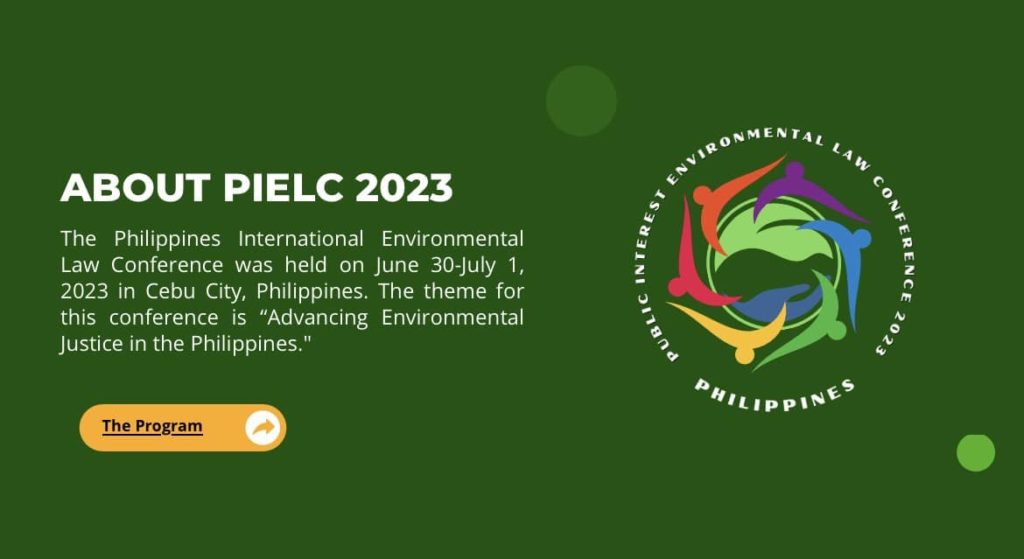As you may know, the Philippines is among the countries with the richest biodiversity in the world having unique coastal, marine and island biotopes within the Coral Triangle1. Unfortunately, this state is one of the world’s biodiversity hotspots, with at least 700 species at risk of extinction. Local unique biodiversity is significantly threatened with extinction due to human activities.
In order to share experiences and find ways to solve environmental problems that occur not only in the Philippines, but also throughout the world, the Public Interest Environmental Law Conference was held in the city of Cebu (Philippines), in which EPL representatives participated.
The conference brought together environmental lawyers, students and environmental advocates to discuss the state of the environment, new laws and case law, proposed draft laws and cases. Specialists were invited to present their experience in preparing and conducting court cases related to violations of environmental legislation. Lawyers from different countries shared strategies and initiatives regarding such lawsuits.
During the conference, participants discussed such topics as protection of oceans, coasts and marine environment, problems with coastal and marine environment conservation in the Maldives, forest management, biodiversity protection and wildlife conservation, wildlife and biodiversity conservation practices in Zimbabwe, combating plastic in Cameroon, functioning of the “Green Tribunal”2in India, experience of environmental litigation in Thailand, challenges in Africa, climate change, solutions to climate change in Indonesia, and issues of defending environmental defenders and the right to clean and safe environment.
Ways to solve environmental problems require global cooperation, because only by combining efforts and resources of the global community will we be able to achieve sustainable development and ensure preservation of our planet for future generations. In addition, it is important for Ukrainian lawyers and scientists to be involved and understand global problems and trends in their solution. This allows us to better define Ukraine’s place in solving global environmental challenges and establish ways to solve the problems we face directly in Ukraine, in particular, those caused by the unprovoked Russian invasion. It is important to note that civil society from all over the world is united in the struggle for a clean and safe environment, sustainable and fair development.


